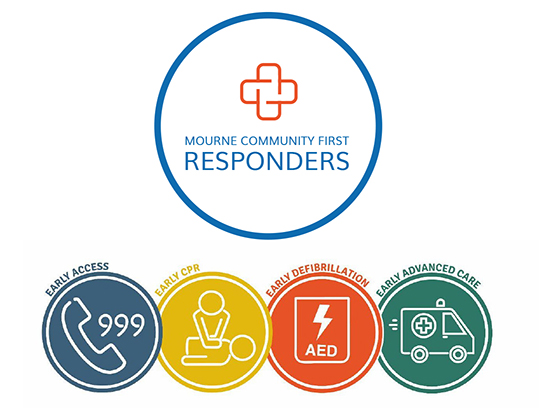Mourne Community First Responders was set up in Memory of James Grant, a loving son, brother and cherished friend to many.
How We Started
James lived in the small rural village of Attical, set in the heart of the Mourne Mountains, he lived for his football with his local Club, Attical GAC. James was described by his coaches as a very talented footballer with a promising career ahead of him. On the 19th December 2019 James died alone at his home after suffering an Asthmatic Attack. Mourne Community First Responders is born out of the loss of James, just seventeen years old.
The Service will provide patient focused care and support for family members at a critical time of sickness, whereby an Ambulance is enroute within the catchment area of Annalong, Ballymartin, Kilkeel, Greencastle and Attical area. The Service was launched in July 2021 via social media by his mum Helene and the Service went live on 14th February 2022 with sixteen Responders completing their training.
Misson Statement
Mourne Community First Responders aim to work in Partnership with Northern Ireland Ambulance Service to complement and provide patient focused care and therefore strengthen the chain of survival by reaching a life threatening emergency within the Mourne area. Local volunteers will be trained in life saving skills by Northern Ireland Ambulance Service and will be alerted to Emergency calls whereby an Ambulance is enroute. This Service will be comprised of volunteers who reside in the area and will serve the Community of Mourne as members of the Mourne Community First Responders Service.
Chain of Survival
Throughout the U.K., more than 30,000 people suffer a cardiac arrest Out-of-Hospital each year. In Northern Ireland, this number is approximately 1,400 cases, with a current survival rate of less than 1 in 10.
With this said, there are a few key steps that can help to improve the chances of survival following a cardiac arrest. This is what we call:
Early Access
Early recognition is vital because, due to the loss of blood flow, the brain can become damaged within minutes from oxygen starvation.
Early CPR
Given early, effective CPR is vital to improving cardiac arrest survival.
Early Defibrillation
Although CPR allows some oxygen to get to the brain, having the individual’s own heart pumping it is more effective. This is why shocks are sometimes delivered.
Early Advanced Care
Onwards care is now provided by medical staff.
